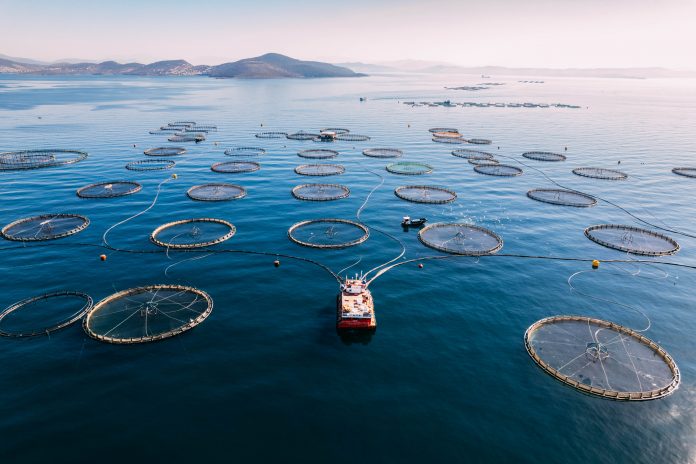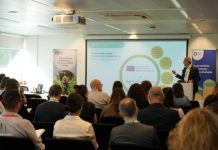Phil Haslam, Managing Director of North Atlantic Fishing Company (NAFCO), walks us through feeding the world through a productive and sustainable fishing industry
Fishing is a cornerstone of countless communities nationwide, providing employment opportunities and economic stability. The sustainable seafood sector and the sustainable fishing industry will not only be critical to more significant economic growth in the UK and beyond but are also fundamental to promoting and achieving global food security.
As the government urges all food producers to minimise their emissions on the road to UK net-zero by 2050, fishing will play a crucial role in providing a sustainable, lower-carbon food source. Central to this will be dispelling the myth that the fishing industry is inherently damaging to the environment: a sustainable fishing industry exists.
The development of the sustainable fishing industry
Hunger is one of the world’s most pressing issues and has been on the rise since 2014. The COVID-19 pandemic further exacerbated this – in 2020, between 720 million and 811 million people experienced hunger, around 161 million more than in 2019.
Food insecurity is the third-largest global emergency we face. In 2020, 2.4 billion people were classified as either moderately or severely food insecure, an increase of almost 320 million from the previous year.
The United Nations Sustainable Development Goal Number Two is to ‘end hunger, achieve food security andimproved nutrition and promote sustainable agriculture’. Many of the world’s population already depends on fish as their main source of healthy animal protein, and pelagic fish in particular, are a sustainable food source. Pelagic fish are found in the ocean’s mid-water column, away from the seabed and far out at sea.
Catching them is cost-effective, given it can be done at scale, with food immediately frozen in factories onboard ships; they are low in cholesterol and packed with essential nutrients such as iron, riboflavin, calcium, and healthy long-chain omega-3 fatty acids.
As the world population grows, so does the demand for affordable, high-protein food. Currently, the global population sits at 7.9 billion, which the UN predicts will climb to 8.5 billion by 2023 and 11 billion by 2100. Meeting the food demands of this population undoubtedly requires fish, both wild-caught and from aquaculture.
Put simply, fishing is imperative if we want to feed the world. However, fulfilling these needs depends on the sector’s ability to adapt and prove its sustainability credentials. Furthermore, we must communicate that fishing is predominantly conducted responsibly within a strict regulatory regime and is sustainable; it represents a key solution to our global food sourcing and security issues.
So, what steps are we taking – both as a country and globally – to ensure a productive, sustainable fishing sector?
Climate and biodiversity is a core tenet of a thriving, sustainable fishing industry
Sustainability is a core tenet of a thriving fishing sector,keeping bycatch to a minimum and helping to conserve marine biodiversity. At the same time, meeting the demands of an ever-growing population will require marine food production to be scaled up.
Industry-led moves towards more sustainable fishing will be essential if we are to feed the ten billion-strong population expected by 2050.
Currently, 82.5% of wild-captured fish is sourced from sustainable stocks (which account for 66% of total stocks worldwide). With more people expected to be sourcing food from the oceans to support global food security, we must build on this sustainability while increasing output to meet demand.
Research and innovation are critical in understanding and addressing the environmental impact of fishing. For example, the pelagic fishing sector invests heavily to ensure that all catches are scientifically analysed, assessing operations and catch quality. The information gathered is widely circulated among the scientific community, which helps government-led fisheries management to make better decisions informing regulation and policy.
International cooperation – between nations, fisheries and supranational bodies – will also be vital if we wish to realise sustainable yet plentiful fishing stocks. This cooperation must consist of agreements, policing waters for illegal fishing and collaboration between fisheries and national governments to produce fisheries management policies.
Within this, Fisheries must account for continual investment in innovations such as modern fishing equipment, greener fuels and propulsion technologies.
UK fisheries management for sustainability goals
With the established global context, we can turn to what the UK specifically does to promote sustainable fishing.
The UK Fisheries Act of 2020 laid out eight objectives, which all UK fisheries must adhere to: sustainability, precaution, ecosystem, scientific evidence, bycatch, equal access, national benefit, and climate change.
These objectives are the foundation of the UK’s new fisheries strategy. By combining the latest innovations with a strong drive to protect marine life, they serve as a blueprint to ensure productive and sustainable fishing in UK waters.
Fisheries management policies provide essential regulation of fishing stocks, maintaining a steady supply of fish to global communities that need it. These policies are continually updated through research and innovation to preserve marine biodiversity and prevent overfishing.
UK government funding for the Fisheries and Seafood Scheme
The UK government has pledged up to £100 million for the Fisheries and Seafood scheme to help fund new developments in catching, processing and aquaculture.
Namely, it aims to:
- Create a more sustainable and resilient sector.
- Boost the demand for English seafood in new markets.
- Improve participation through co-design and co-management.
- Achieve good environmental status through conserving and restoring the marine environment.
- Support net-zero through reducing emissions within the industry.
With the ambition of meeting sustainability goals, this scheme includes funding for marine conservation – protecting habitats and ecosystems and encouraging further biodiversity. Vibrant, healthy ecosystems do not just ensure sustainable fishing stocks but also work to safeguard the well-being of other marine life.
This pledge from the government is particularly important given that the fishing industry provides clear economic benefits and employment opportunities to coastal communities around the UK, many of which depend on the sector. Well-managed fisheries will be essential to the viability of these opportunities, ensuring fishing communities’ success in the long term.
Sustainable stocks and communities
As a cost-effective foodstuff packed with nutrients, we cannot feed the world without fish. It is a part of the solution – not the problem – when it comes to the sustainability of food supply.
Increasing consumption is inevitable as the global population grows, but it must be done sustainably. We must also recognise the value of fish in the fight against hunger and its potential to provide nourishment for generations. Therefore, international investment in research and innovation within the sector will be essential.
The UK government’s commitment outlined here will go a long way towards ensuring more sustainable fishing stocks and practices. In addition to protecting marine life, the investment will also stimulate economic growth, providing much-needed opportunities to fishing communities across the country.












Sustainable fishing industry? Just stop eating fish, can’t get more sustainable than that.